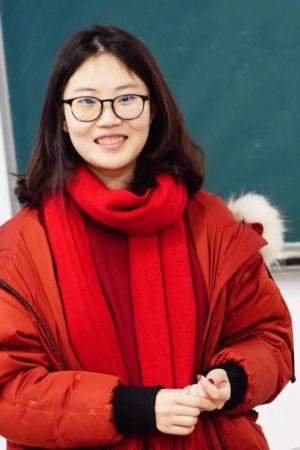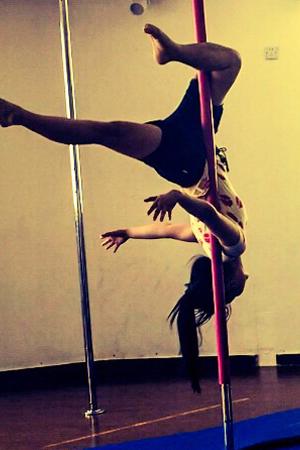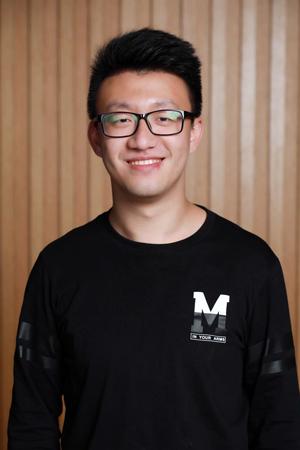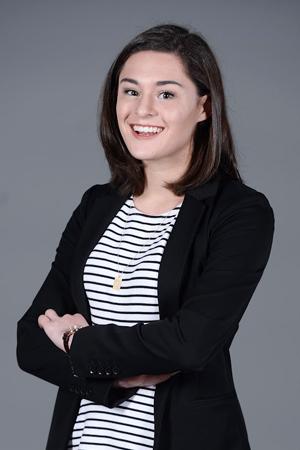NYUSH was a safe place for me to try different possibilities that I might have been too intimidated by elsewhere. All my further studies, research, and entrepreneurship, originated from something I did or some decision I made during my time at NYU Shanghai, even though I might have no idea at that moment what they would lead to in the future.
Alumni Voices
-
 Xiaohan Yang '18Fellowship:Schwarzman Scholars Semi-FinalistMajor:Business and FinanceAdvice:"The secret to getting ahead is getting started" - Attributed to Mark Twain
Xiaohan Yang '18Fellowship:Schwarzman Scholars Semi-FinalistMajor:Business and FinanceAdvice:"The secret to getting ahead is getting started" - Attributed to Mark Twain -
 Xiaoyue Gong '17Fellowship:MITMajor:Honors MathematicsAdvice:You don't know what you can or cannot accomplish if you never try it.
Xiaoyue Gong '17Fellowship:MITMajor:Honors MathematicsAdvice:You don't know what you can or cannot accomplish if you never try it. -
 Zeyu Richard Zhao '17Fellowship:Schwarzman Scholars (Semi-Finalist)
Zeyu Richard Zhao '17Fellowship:Schwarzman Scholars (Semi-Finalist)The most important thing that I've learned through applying for Schwarzman, and then Rhodes, and now law school is that one really needs to figure out what he or she really enjoys doing. I started out as a finance major, performing really poorly in pretty much all the classes I took because finance didn't interest me. But then I discovered what interested me and what truly mattered to me. In my case, it's law and education/healthcare equality. Once you figure that part out, the rest kind of comes together naturally. You'll want to work hard on whatever is interesting to you, and then you'll have great stories to tell and awesome
Advice:My one piece of advice for future applicants is that you need to know your stuff. As I said, figuring out what excites you is important, but what's more important is that once you've taken care of that, you need to put in the time and effort to learn more about it through research and first-hand experience. For example, if you really care about protecting the environment, you probably should know the names of organizations that advocate for environmental protection. You may also want to participate in events related to environmental protection. If you find yourself unwilling to put some effort into learning more about a particular field, you probably aren't interested in it after all. -
 Ziqing Chen '17Fellowship:Hans Wildorf Scholar & Rhodes Scholarship FinalistMajor:Gender Politics
Ziqing Chen '17Fellowship:Hans Wildorf Scholar & Rhodes Scholarship FinalistMajor:Gender PoliticsOne great advice I received during this process was to be myself, but in a magnified version. To do that, I sketched page after page and identified a few core ideas that represent my candidacy. This is a good “soul-searching” exercise. And your talking points are about not just arguments, but also stories. As I noticed during interviews, when I told stories, people listened. Snippets of your personal journey can bring interviewers to a more empathetic footing, and they are no one else’s but yours. Magnify that.
Advice:Whether one wins or not, it is just the beginning of the real work. -
 Zoe Jordan '18Fellowship:Yenching ScholarsMajor:Global China Studies
Zoe Jordan '18Fellowship:Yenching ScholarsMajor:Global China StudiesReceiving a fellowship, and more importantly going through the application process, was an undoubtedly frustrating but confidence-building exercise. It was incredibly rewarding to transform my own string of events -- events that seemed inconsequential or "not good enough" in my own eyes -- into a narrative of growth. An honest, well-articulated story of where I am, where I'm going, and how I hope to get there is something I have aimed to illustrate for application readers, but also gives me a reminder of my own progress and trajectory. I was handed a lot of rejections, but eventually ended up in the best program for me and
Advice:For me, the scariest part of application writing is that it emphasizes how your ideas are only as good as you can communicate them to be. So its easy to spend a lot of time worrying about how a committee will respond to each word, or small sentence fragment, and lose sight of the big picture. I've found it helpful to find three to four trusted editors, who come from different backgrounds and might consider different elements of your writing, and after that, just make peace with your work and submit. You might never feel "done" with an essay, but it's necessary to know the boundary between polished writing and work that isn't your own anymore. Most of these essays are not formal academic pieces, but are meant to reflect your personality. That's challenging, but also empowers you with a lot of agency to create something uniquely 'you.'
Pages
- « first
- ‹ previous
- 1
- 2
- 3



 沪公网安备31011502017015号
沪公网安备31011502017015号